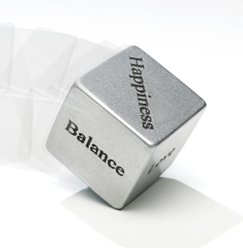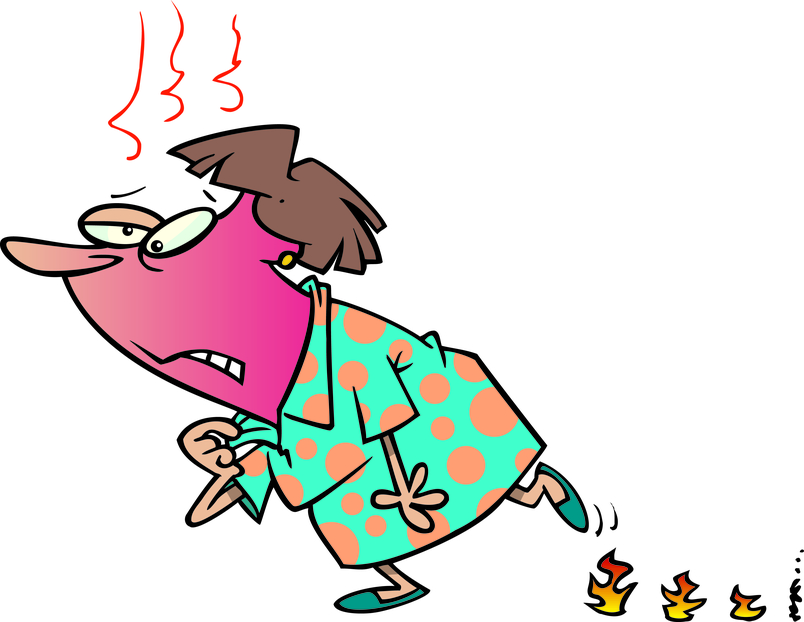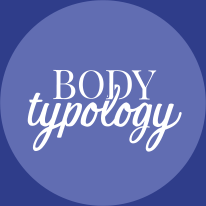Symptoms of Menopause
The list of the symptoms of menopause is long.
Menopause starts when the ovaries start producing fewer hormones.
What is a hormone?
A hormone is a chemical substance produced in the body that controls and regulates the activity of certain cells or organs. "Hormone" means... to set in motion.
Why are hormones important?
Hormone imbalance in women is associated with every major disease that plagues western society:
- Cancer
- Cardiovascular disease
- Osteoporosis
- Diabetes
Normal age of menopause is 35 to 55.
Tiny amounts of hormones cause large changes in the cells that lead to symptoms.
They send and receive messages critical for many body functions.
They are part of a regulatory system that plays a role in immune function... And most importantly…

They can make the difference between a good day and a bad day!
The 3 stages of menopause:
Peri-menopause
Menopause and
Post-menopause.
Peri-menopause symptoms or signs of early menopause:
- Irregular cycles
- Heavy cycles
- Low energy
- Food cravings
- Weight gain, bloating, especially around the waist
- Fibrocystic changes
- Mood swings
Symptoms are associated with anovulatory menstrual cycles, due to estrogen withdrawal
- Break through bleeding
- Length of menstrual cycle is shortened
- Irregular spotting
- More likely to experience depression and anxiety
- More likely to have undergone a gynecological surgical procedure
Hormone response is as unique to each person as their own fingerprints. Hormone replacement therapy should not be considered without a thorough understanding of how all of the body’s hormones interact with each other.
My page about low estrogen symptoms explains about the glands that take over when the ovaries stop producing estrogen. These glands, the liver, the thyroid and the adrenals need to be in top shape for your natural treatment for menopause.
Menopause symptoms

- Hot flashes, flushes, night sweats and/or cold flashes, clammy feeling
- Irregular heart beat
- Irritability
- Mood swings, sudden tears
- Trouble sleeping through the night
- Irregular periods; shorter, lighter periods; heavier periods, flooding; phantom periods, shorter cycles, longer cycles
- Loss of libido
- Vaginal dryness
- Crashing fatigue
- Anxiety, feeling ill at ease
- Feelings of dread, apprehension, doom
- Difficulty concentrating, disorientation, mental confusion
- Disturbing memory lapses
- Incontinence, especially upon sneezing, laughing
- Itchy, crawly skin
- Aching, sore joints, muscles and tendons
- Increased tension in muscles
- Breast tenderness
- Headache change: increase or decrease
- Gastrointestinal distress, indigestion, flatulence, gas pain, nausea
- Sudden bouts of bloat
- Depression
- Increase in allergies
- Weight gain
- Hair loss or thinning increase in facial hair
- Dizziness, light-headedness, episodes of loss of balance
- Changes in body odor
- Gum problems, increased bleeding
- Burning tongue, burning roof of mouth, bad taste in mouth, change in breath odor
- Changes in fingernails: softer, crack or break easier
See also
WEIGHT AND MENOPAUSE
Submitted by Donna Ellis
(Riceville, Tn USA)
I lost weight a very long time ago on a low carb diet, but now that I am in Menopause I can't lose any weight and I have actually gained 10 pounds and of course its right in the middle. I have always carried my weight there. Can you please help.
Sue-Anne's Reply:
Hi Donna,
While our metabolism does slow down slightly with age, the thing is, menopause is Not a cause of weight gain.
We do have to be more careful with portion control and we definitely have to move the body more and continue exercising, and eat a variety of healthy foods in the most natural state possible.
When all these things are in place you will lose weight, especially if you are eating right for your body type of course! You can find a lot of information about that on my website.
I don't believe in low carb, or depriving yourself. I encourage my clients to eat Good quality carbs, like brown rice, quinoa, barley, kamut, spelt, potatoes and sweet potatoes. This keeps them full and satisfied a long time, and then they don't eat unhealthy snacks in between meals.
Sometimes a gently detox can be beneficial in helping the liver detox to jump-start weight loss.
I am going through menopause and I have actually lost weight as I remain active and eat healthy, it is possible! It takes determination and commitment to choose healthy food consistently and exercise. We can sail through menopause with ease and grace and maintain our weight. It is also a great time of expansion and stepping into our true power. No longer putting up with "stuff."
Transformational indeed!
A consultation with me or joining my membership will help you determine your body type and by eating right for your type the weight will easily come off for good.
Night Sweats
Submitted by Burnie
(L'ile Bizard, Montreal Quebec Canada)
2 years ago I had my uterus removed but I still have my Fallopian tubes. For about a year I didn't suffer from night sweats, now I am dealing with night sweats but it started gradually and now it's gotten worse.
I am sweating day and night and it's very embarrassing when I'm having a conversation and all of the sudden my internal oven goes on and it feels like the temperature just raised about 350 degrees. Can you please tell me what I can take or do I need a hormone replacement? please tell me what to do because it's effecting my life and I am going through depression because of it.
Thank you so much for your help.
Sue-Anne's Reply:
When going through menopause or suffering from menopause symptoms, many things play a role. The ovaries stop producing estrogen and the adrenal glands and liver have to take over in balancing the hormones.
Many people have a liver that is congested due to exposure to so many chemicals, air pollution, pesticides on our food, chemicals in Advil etc. Fired or fatty foods, alcohol. The liver is overloaded and can not handle balancing hormones, so things get out of balance.
If the adrenal glands are weak, due to the daily, constant stress in our life, hot flashes and menopause can increase.
It is important to eat as healthy diet as possible. Follow a healthy lifestyle, get plenty of fresh air and exercise, eat right for your body type, etc. Stop drinking coffee, eat lots of dark leafy greens.
There is no reason to suffer, there is much that can be done naturally, Contact me for more personalized help.
